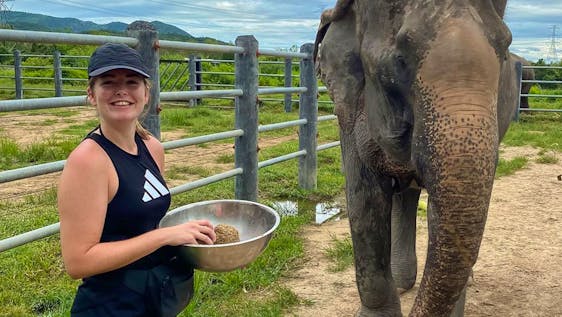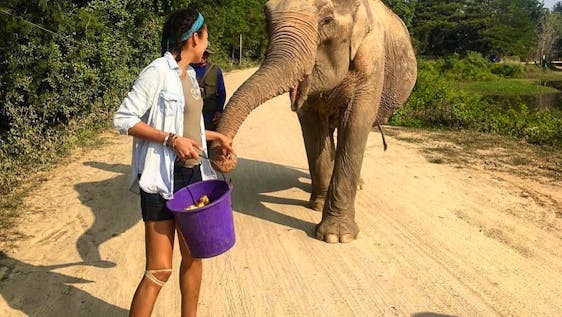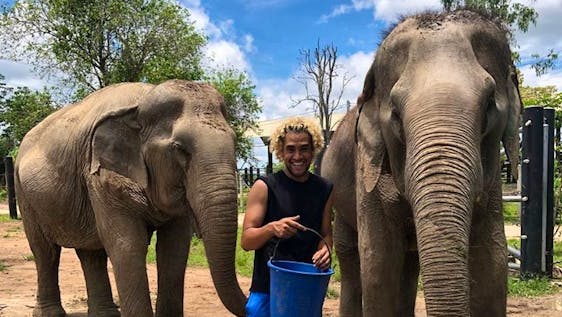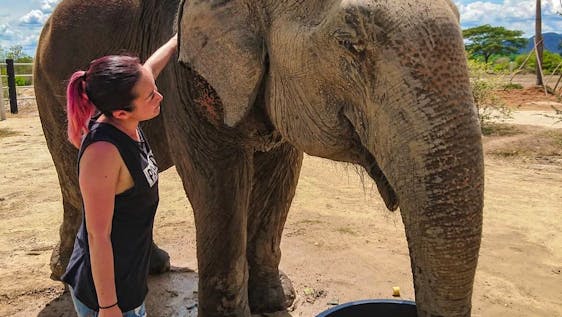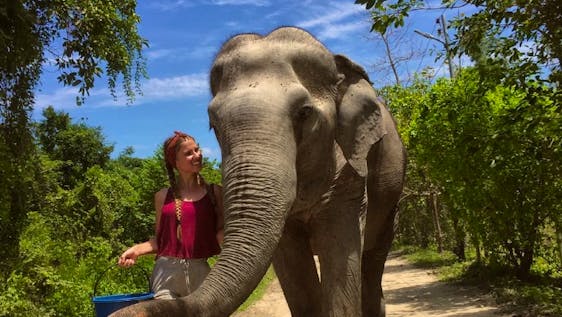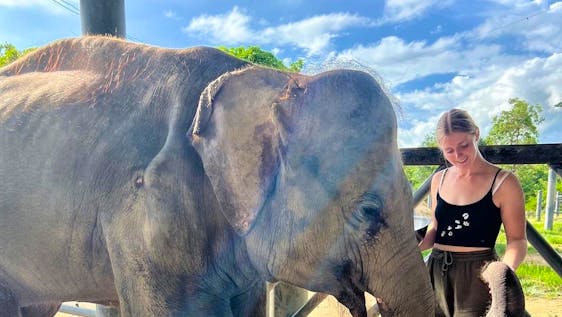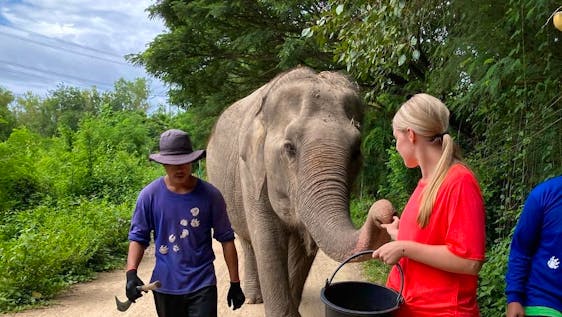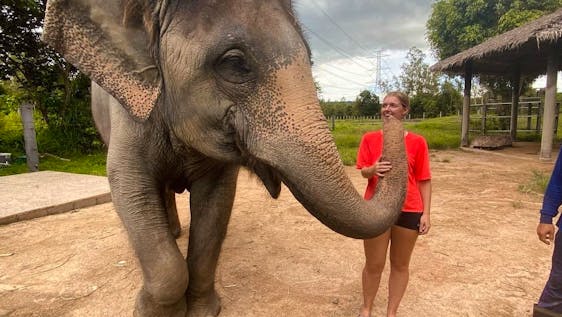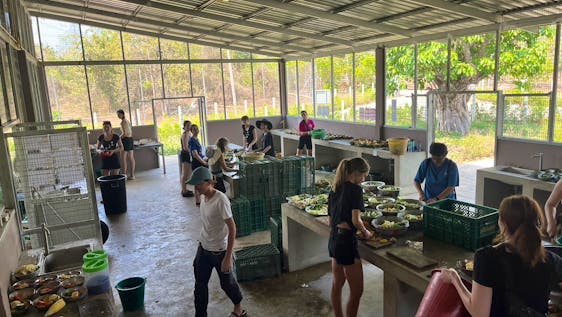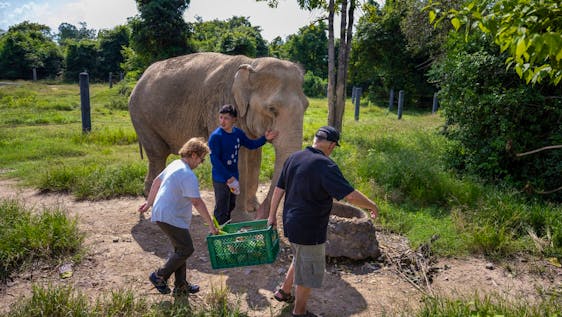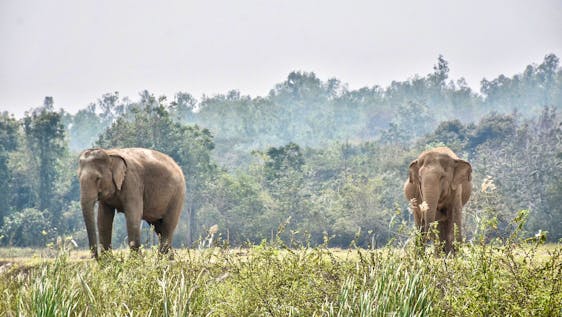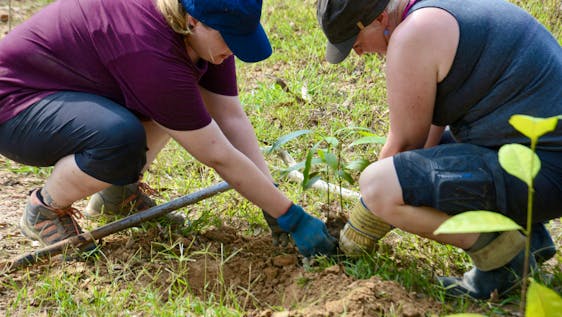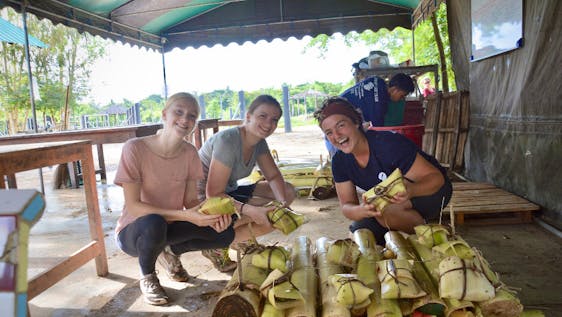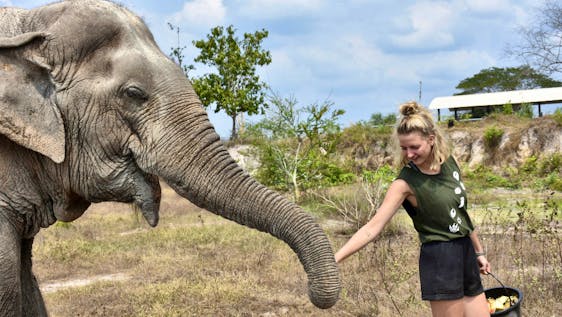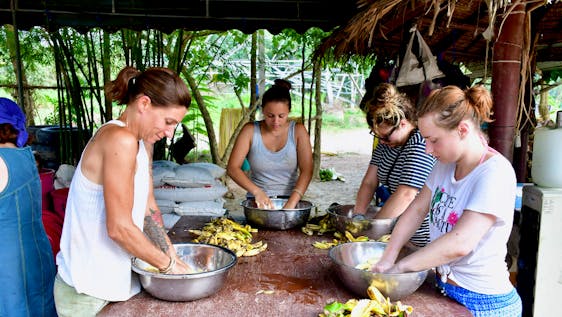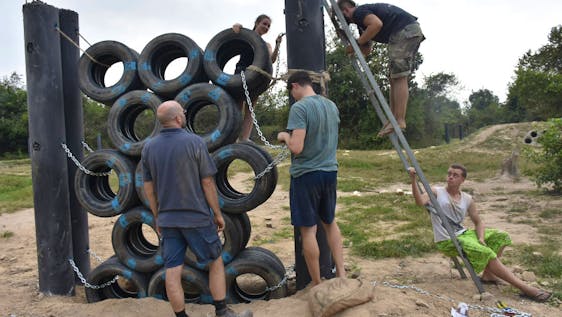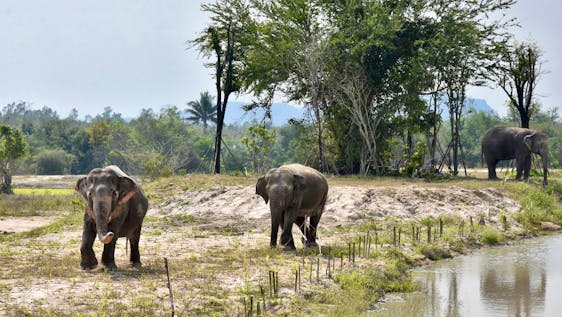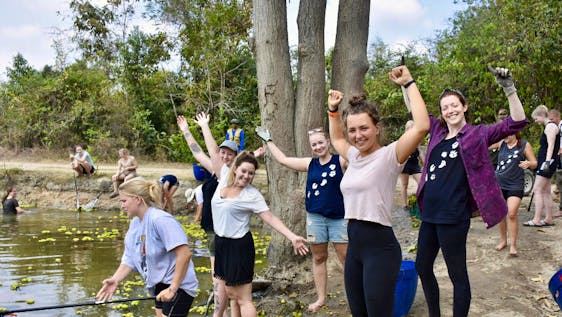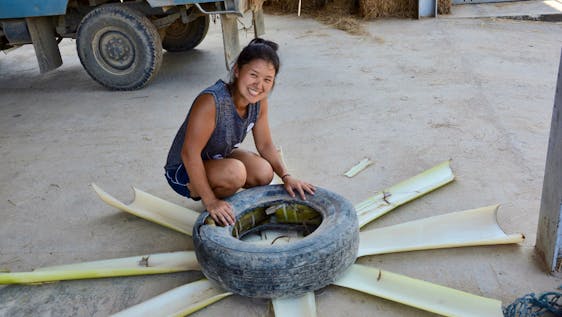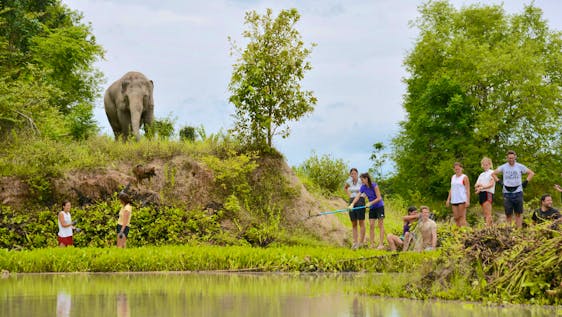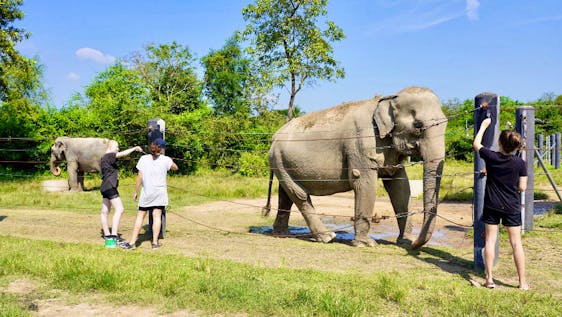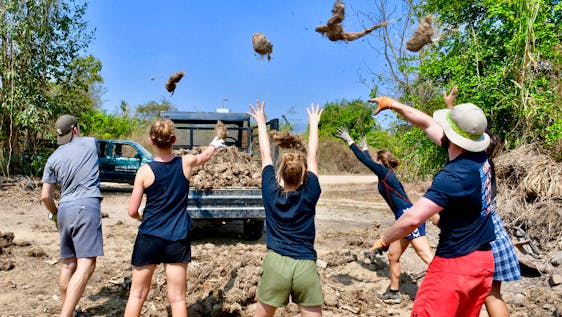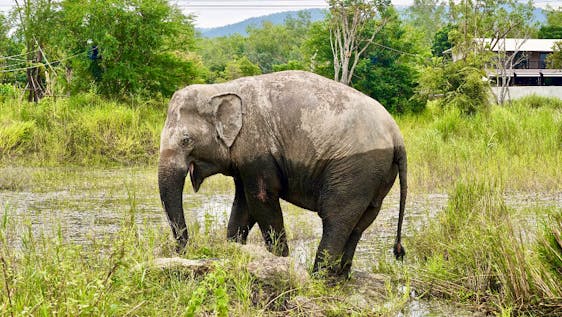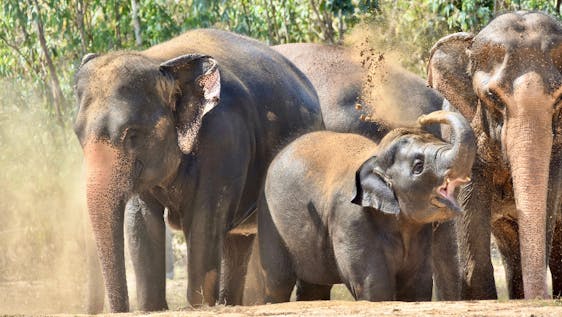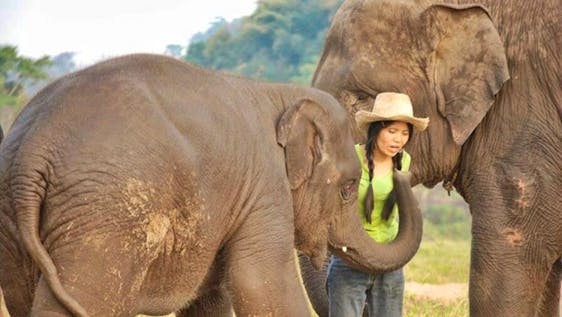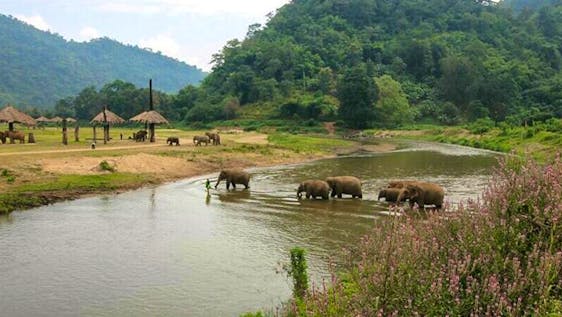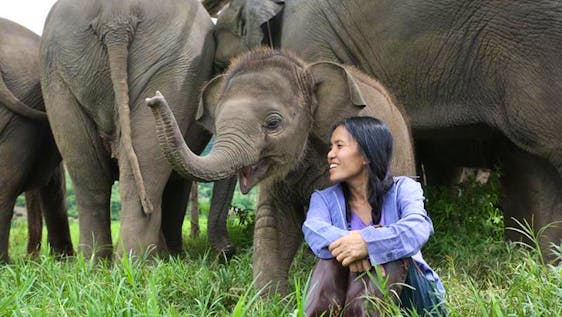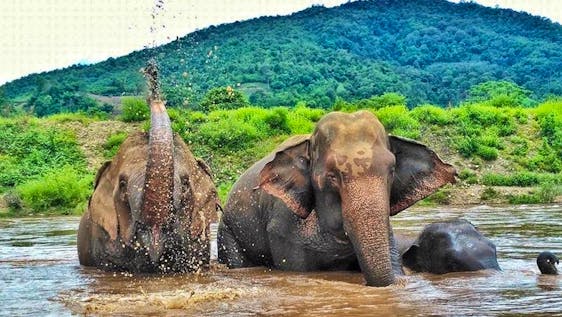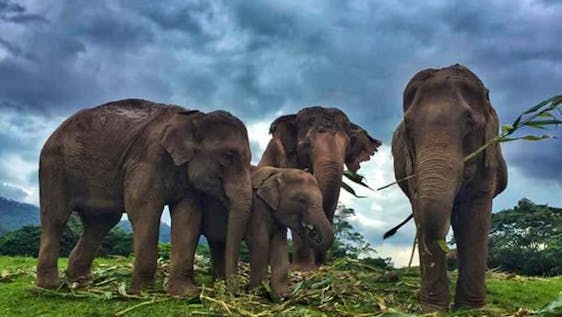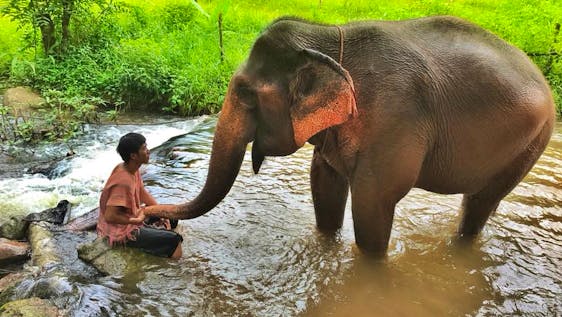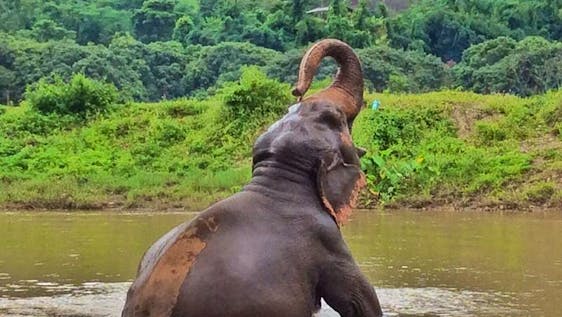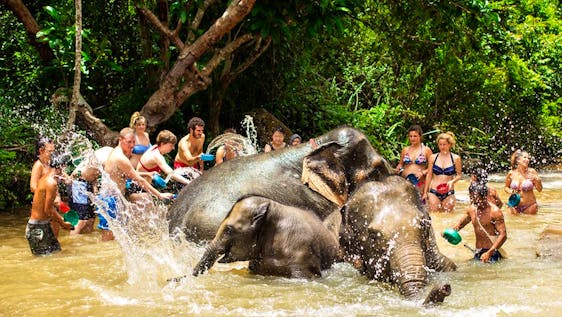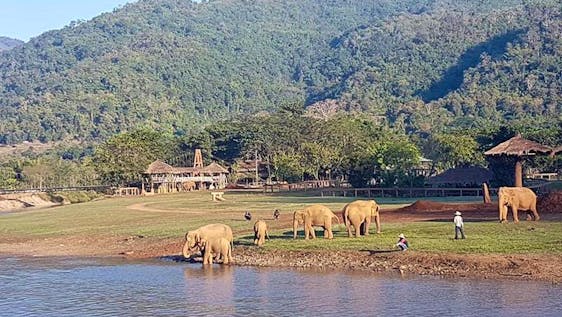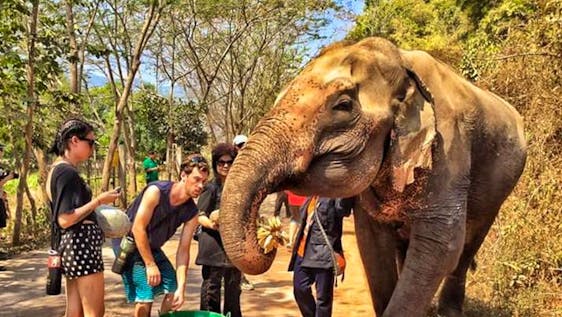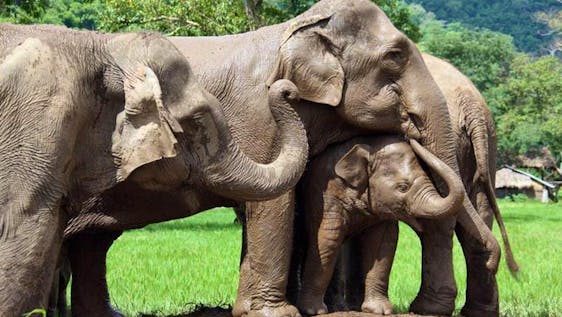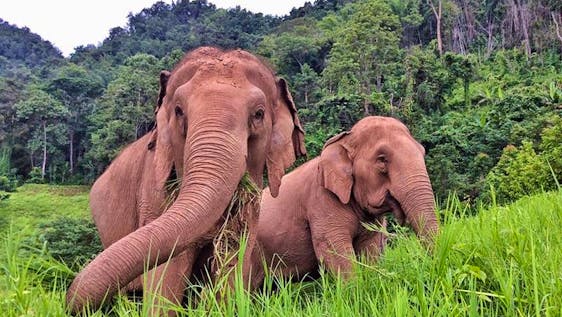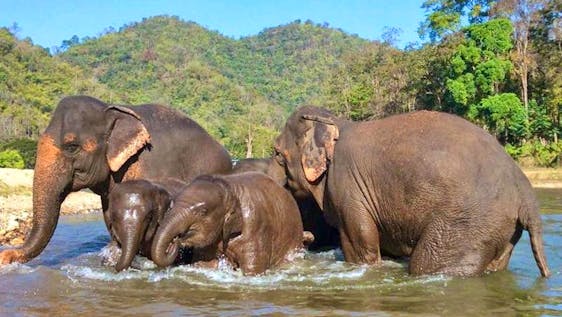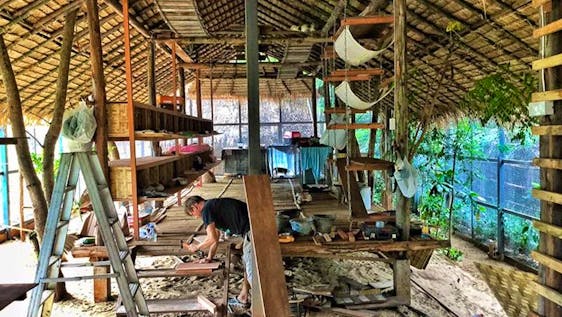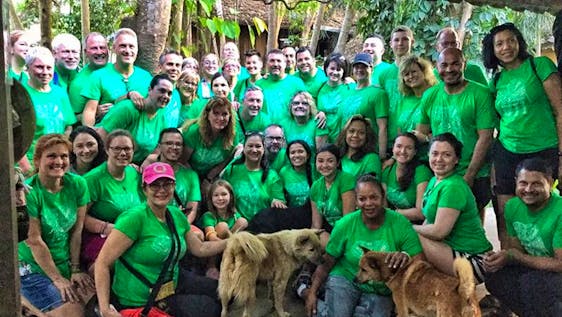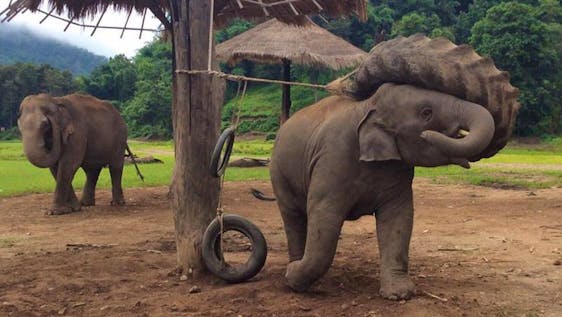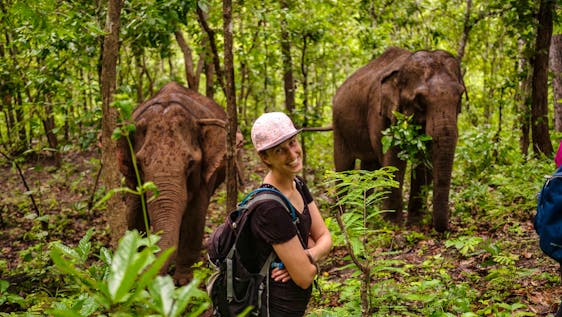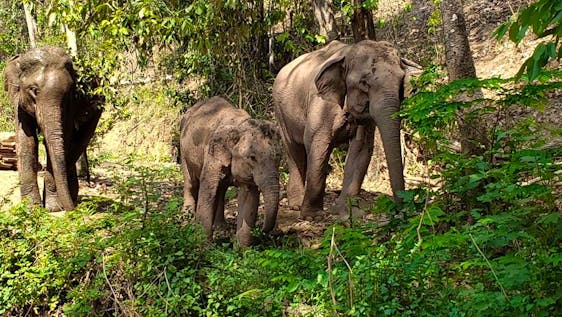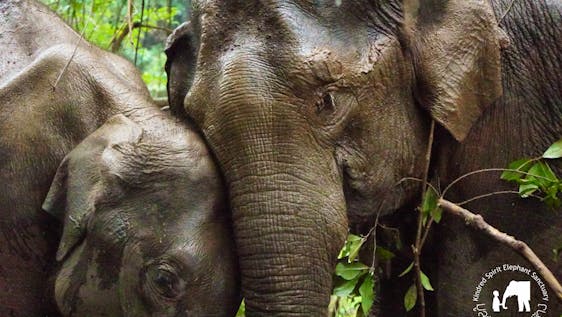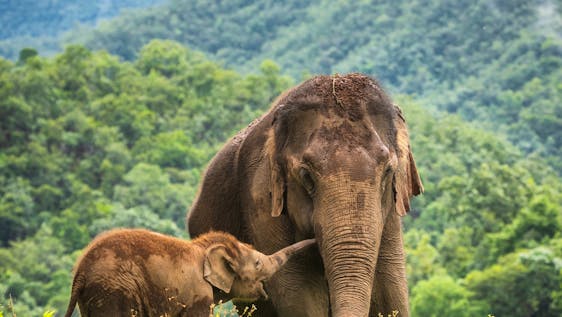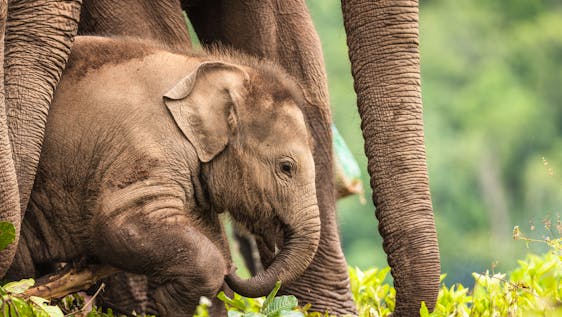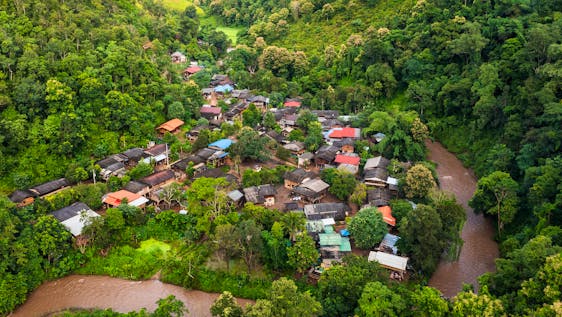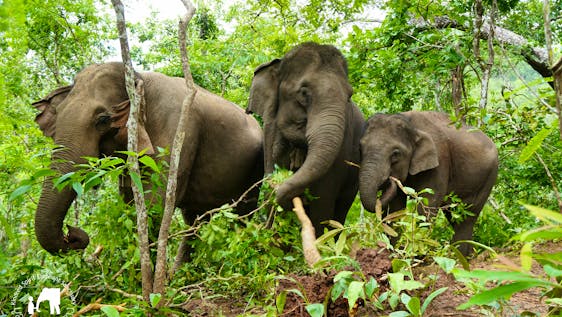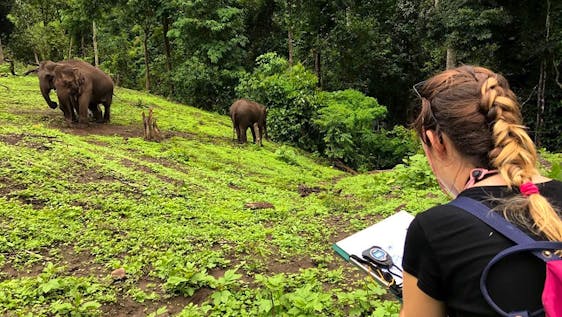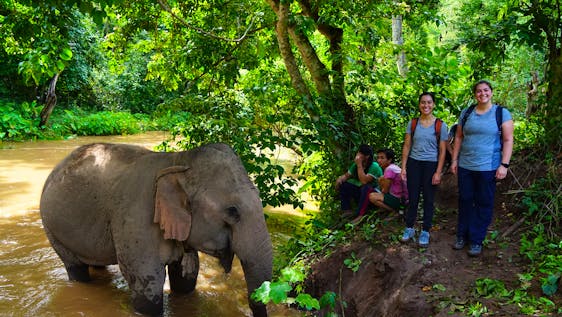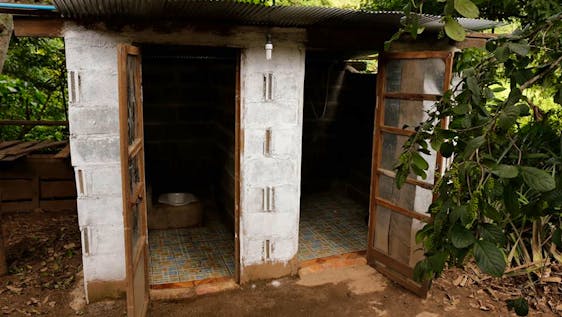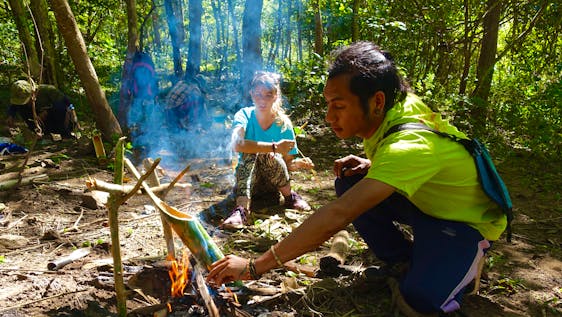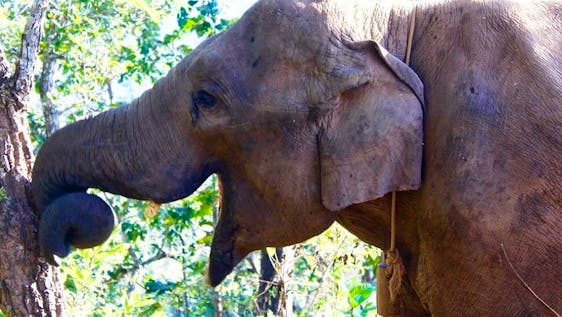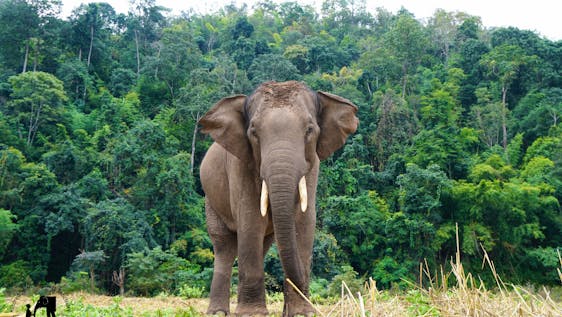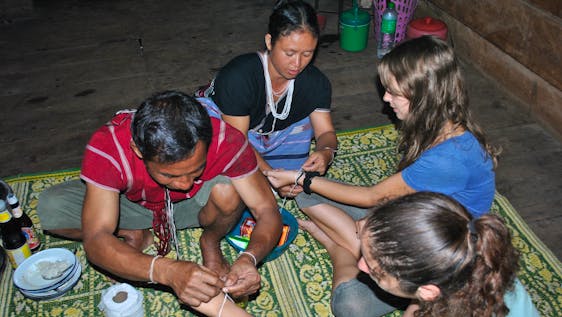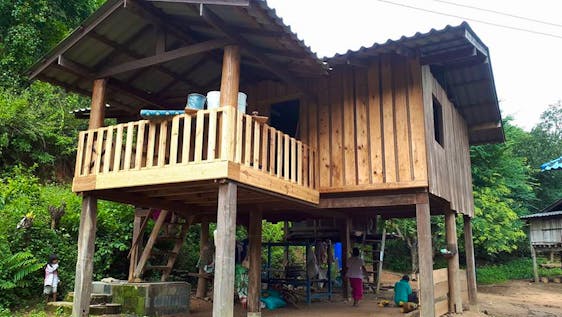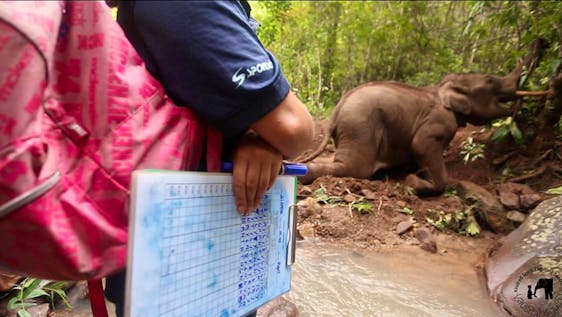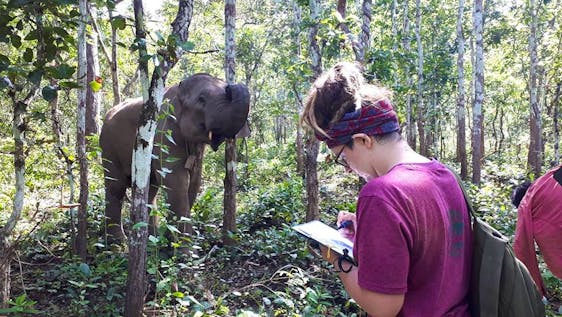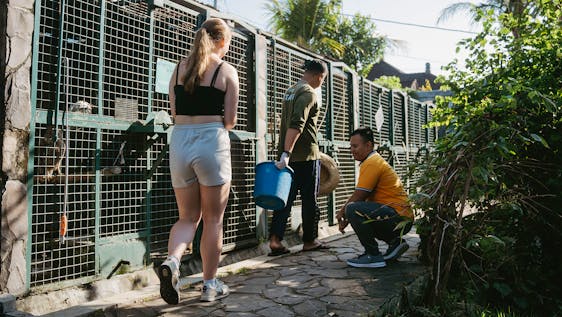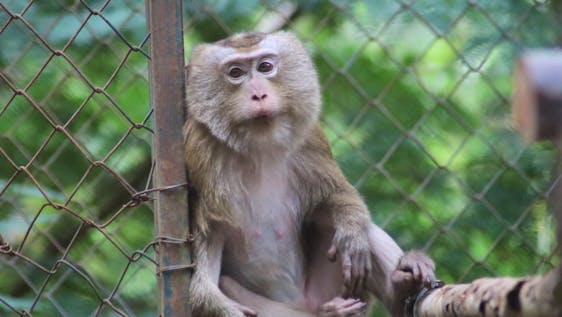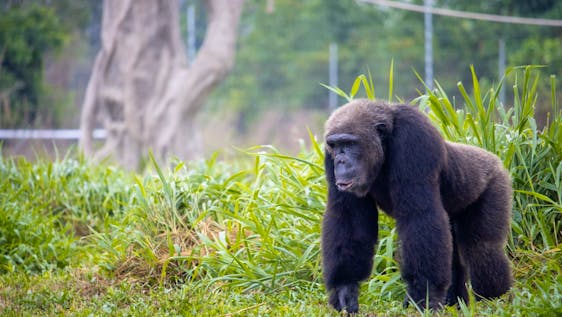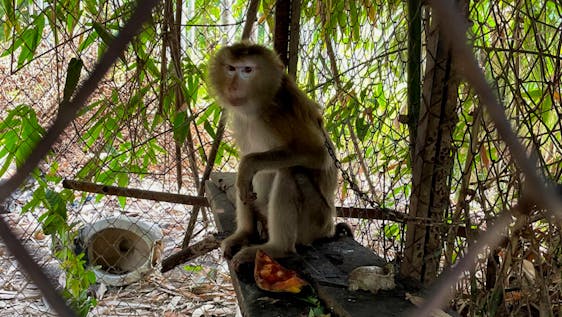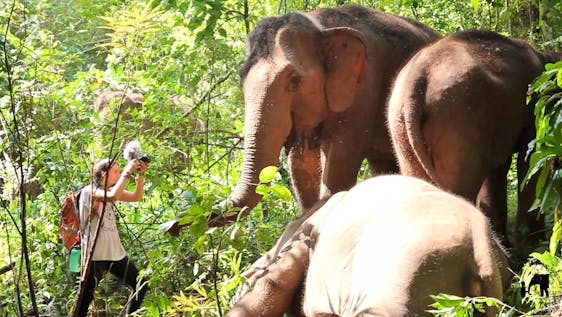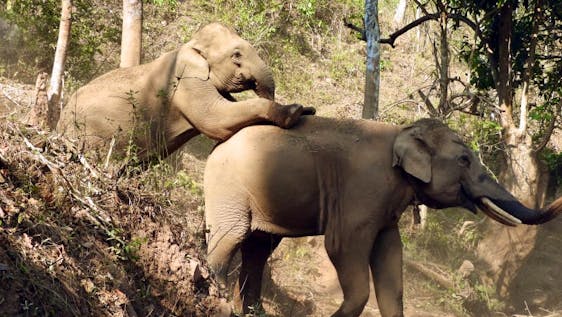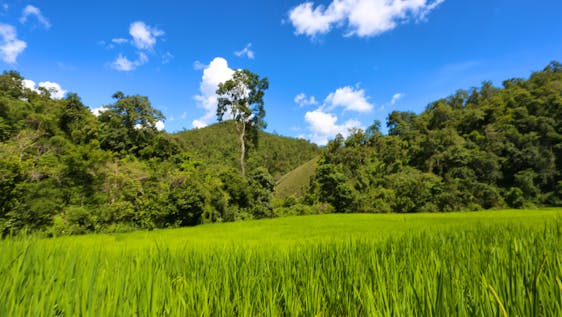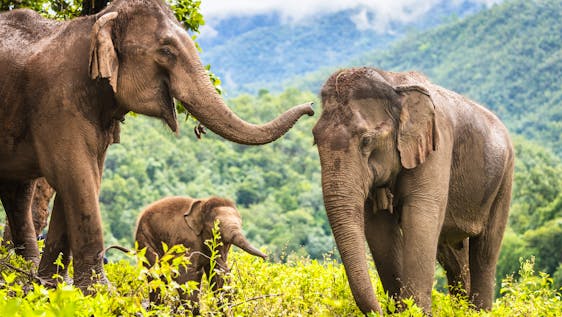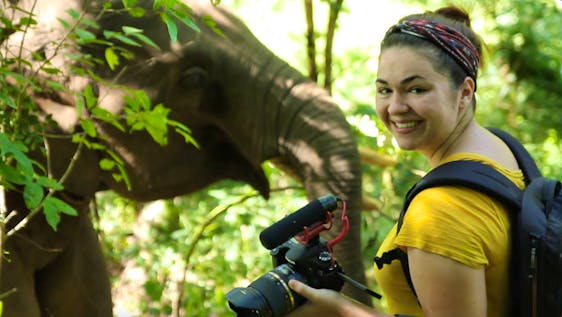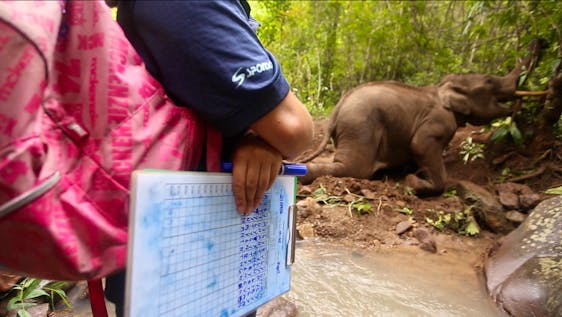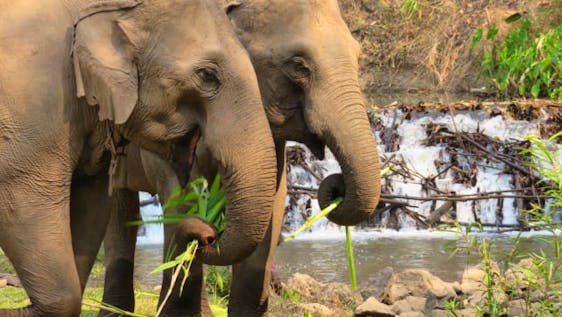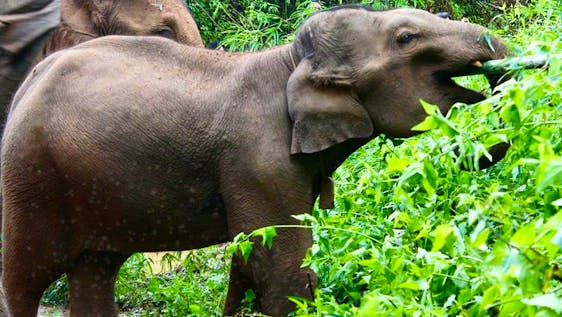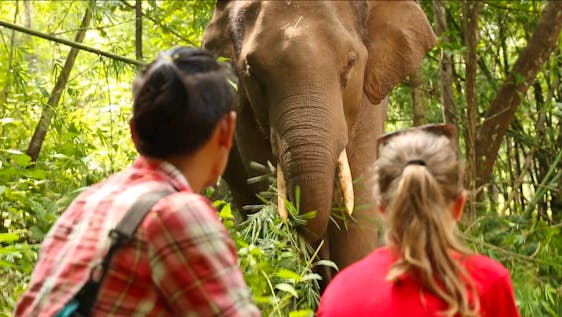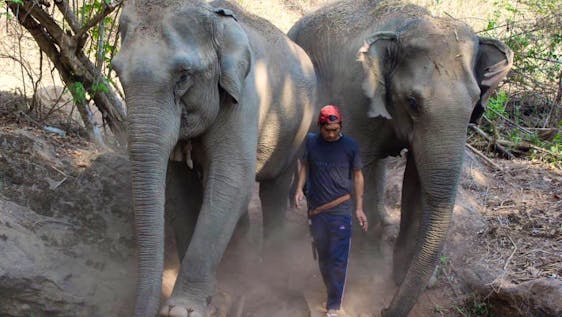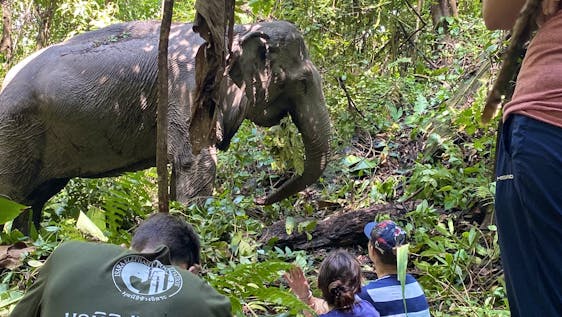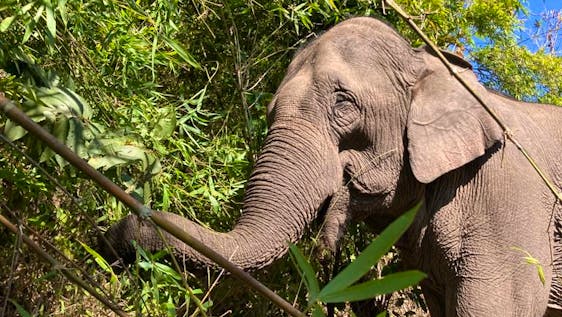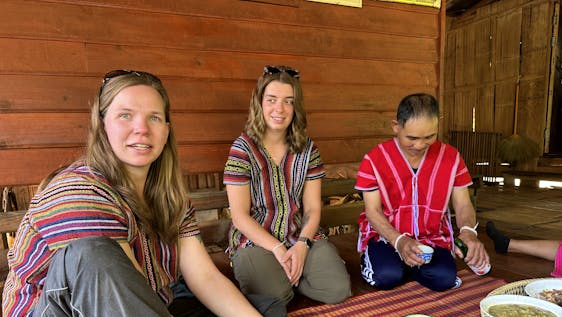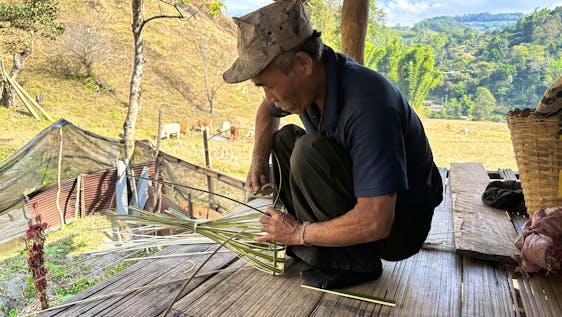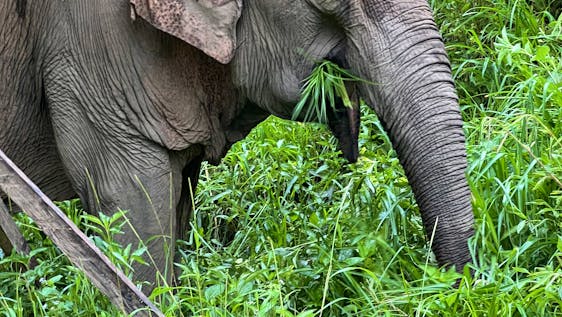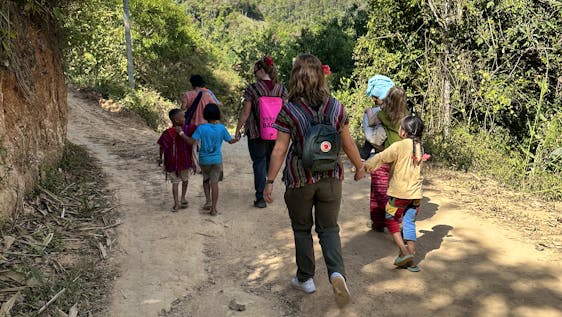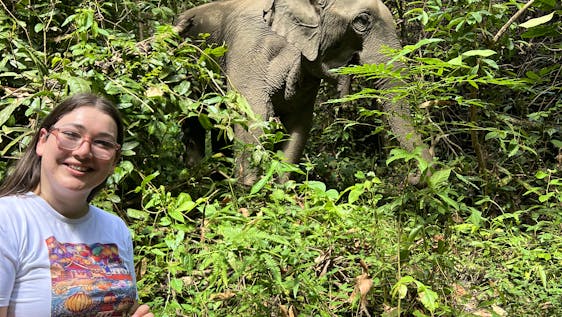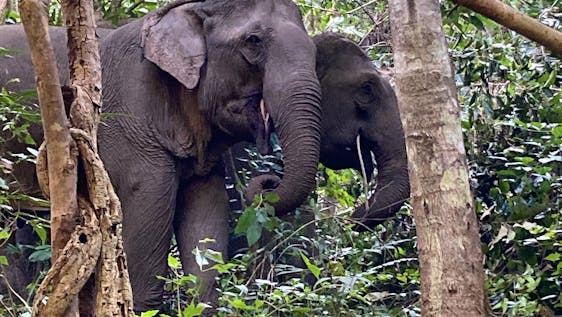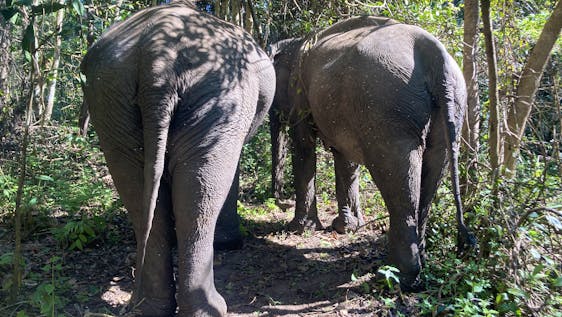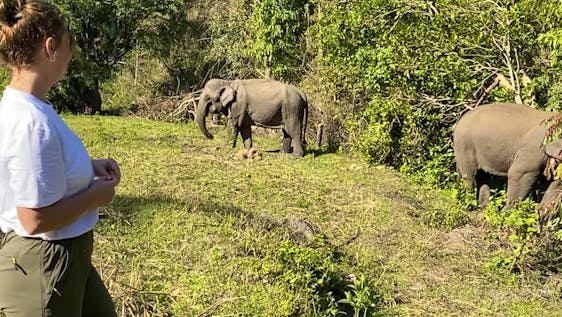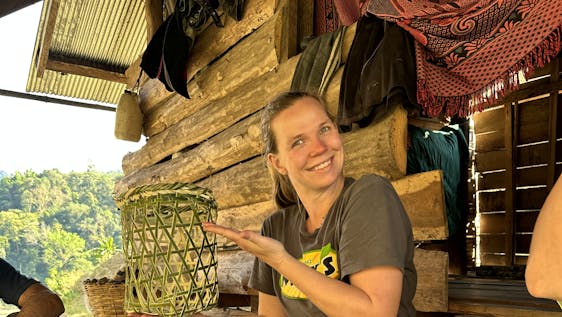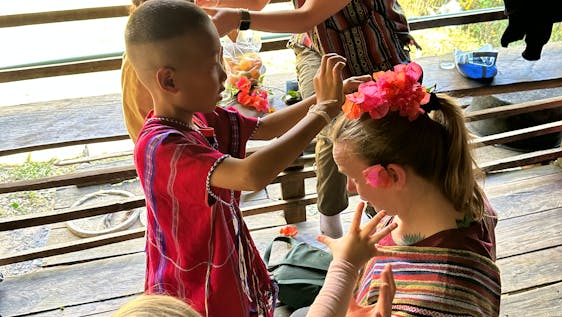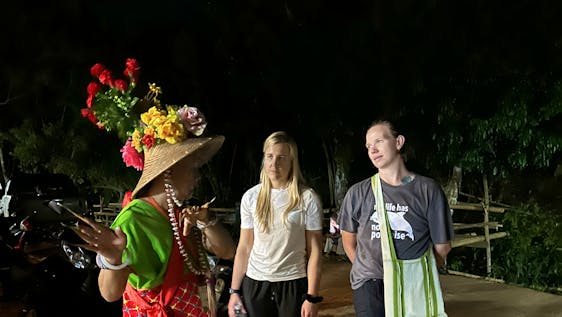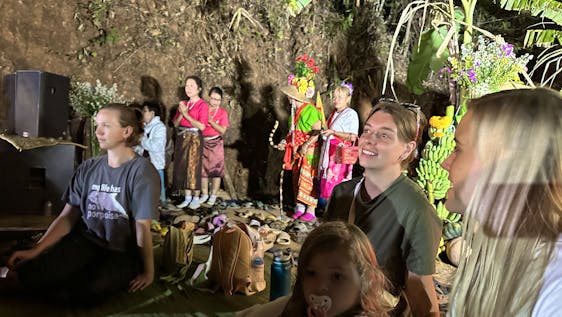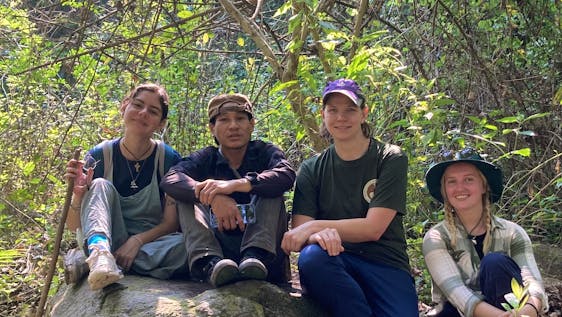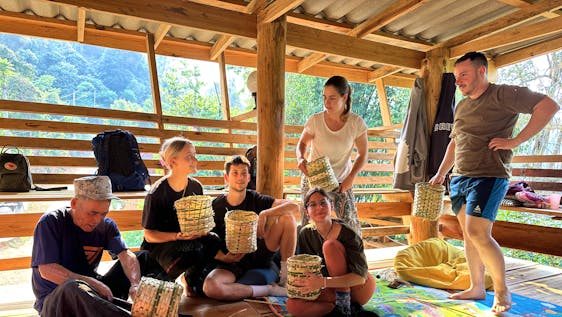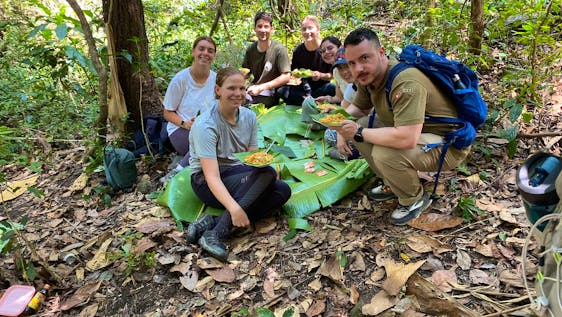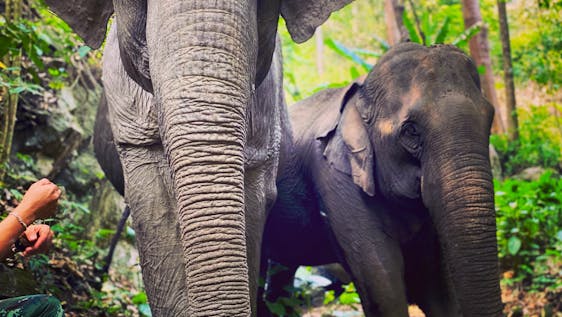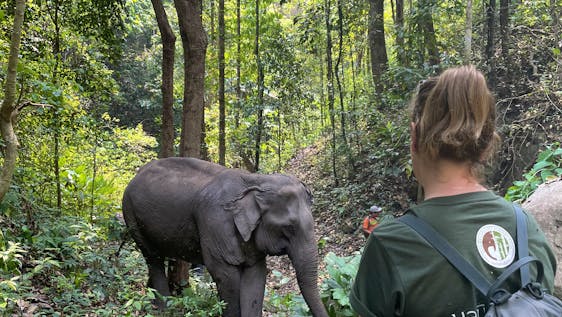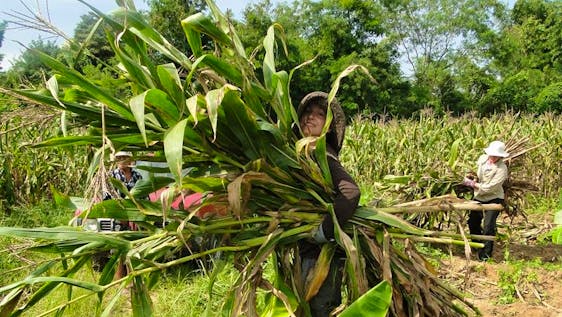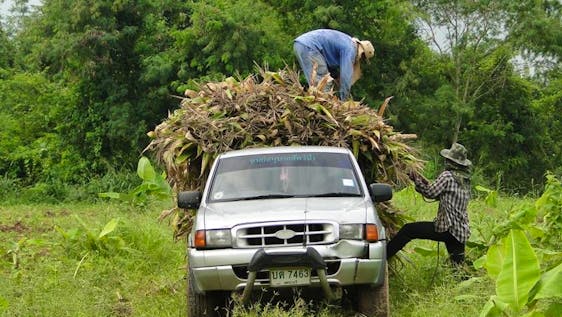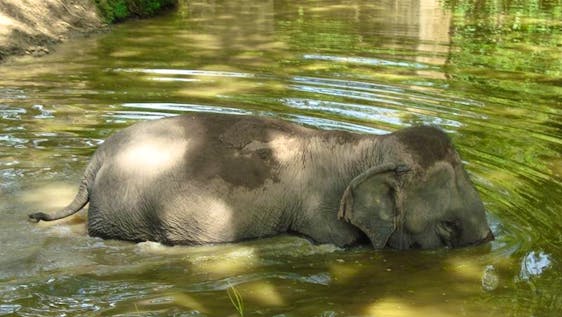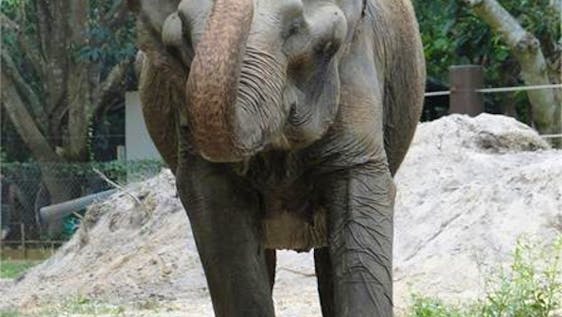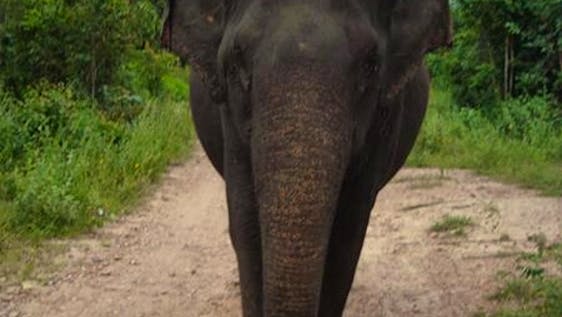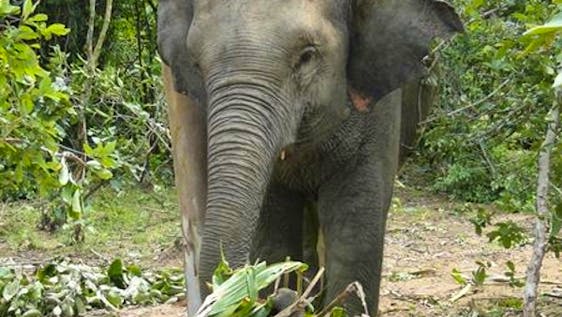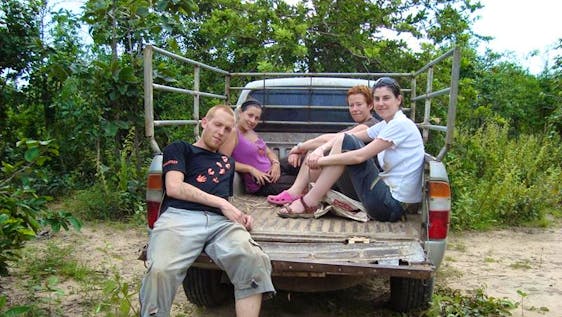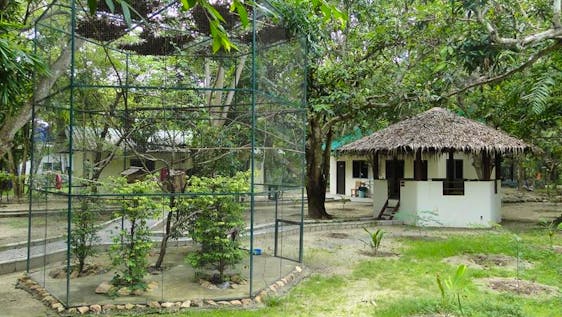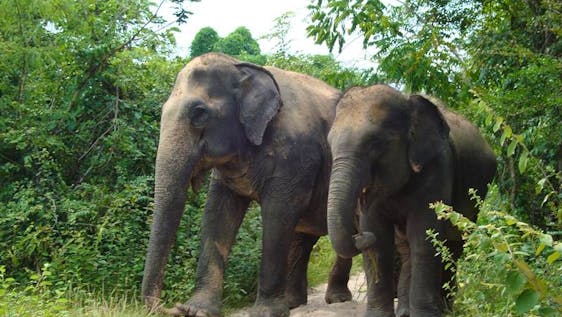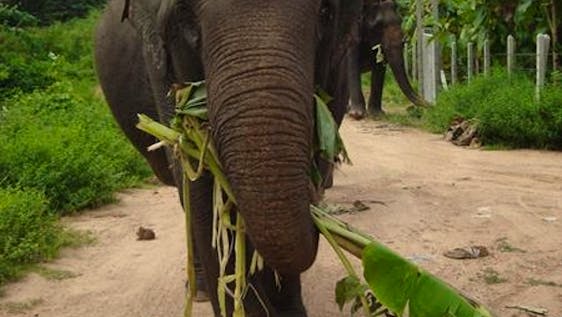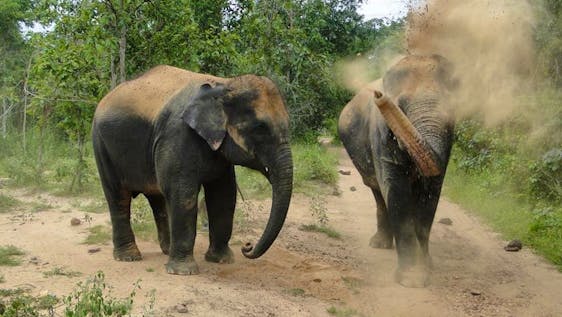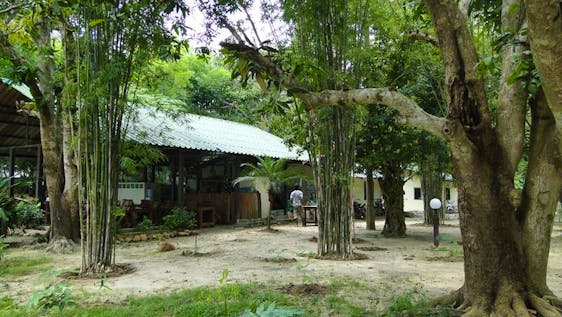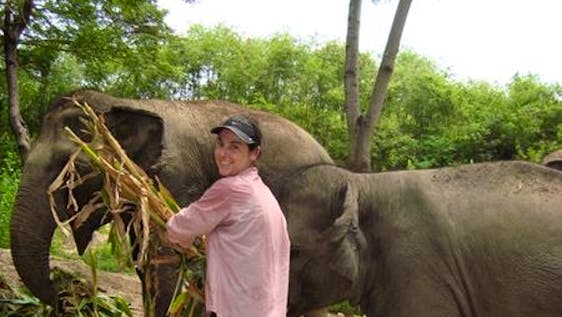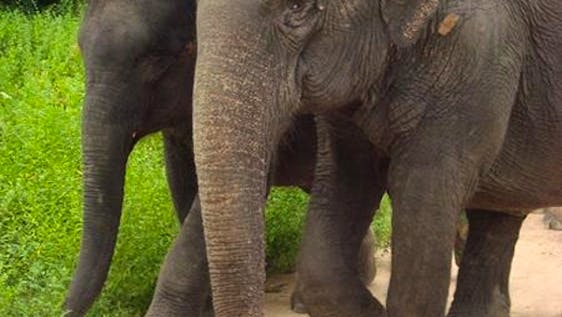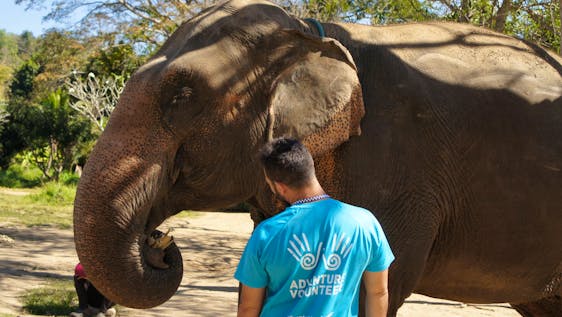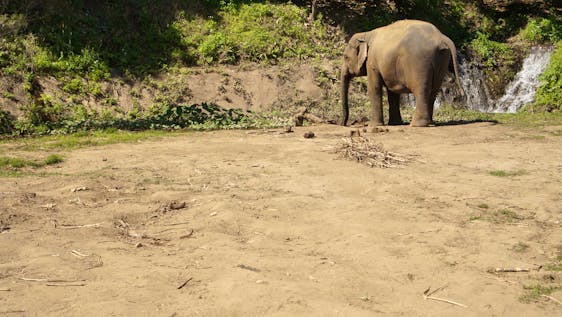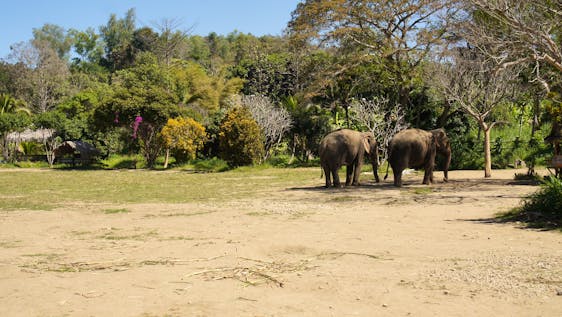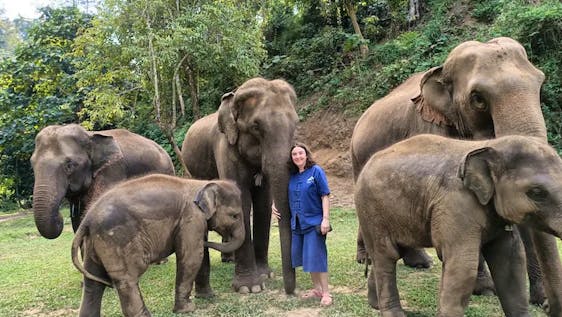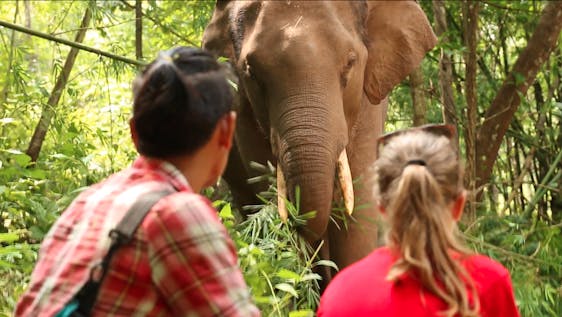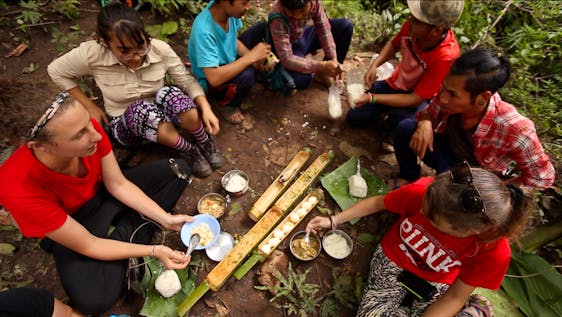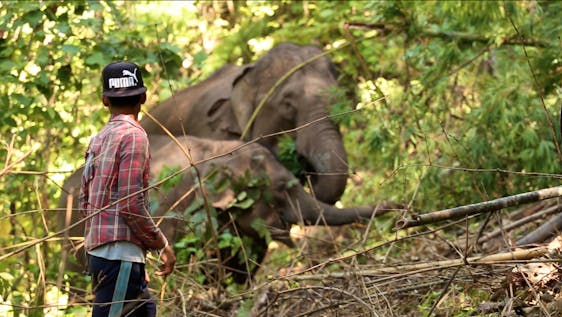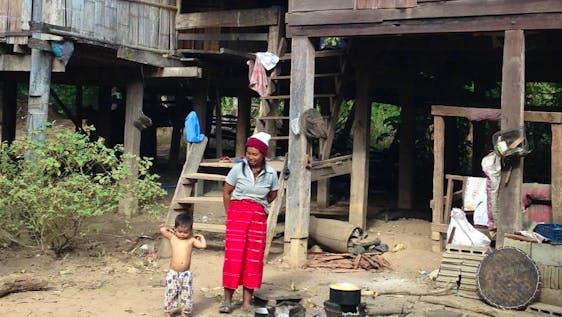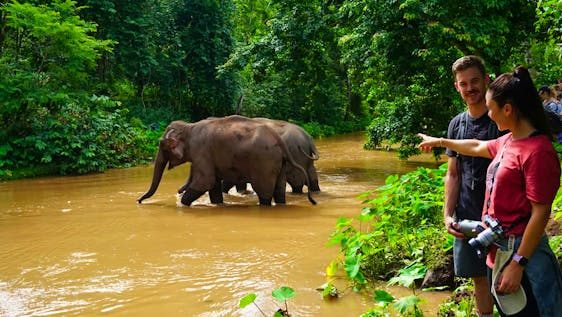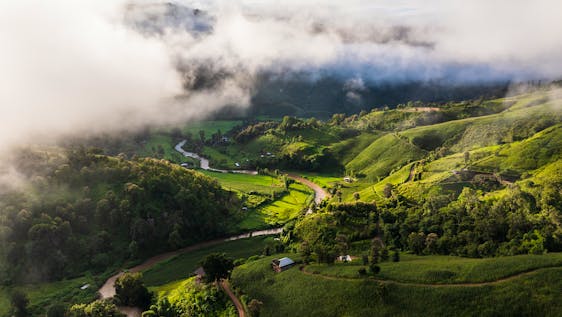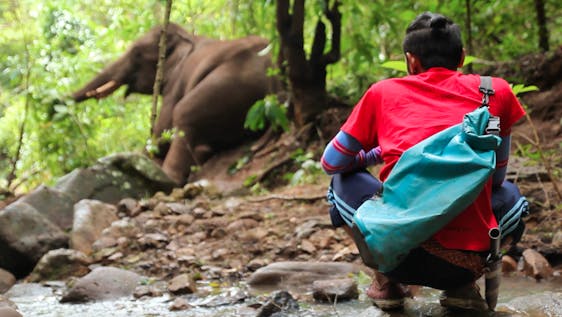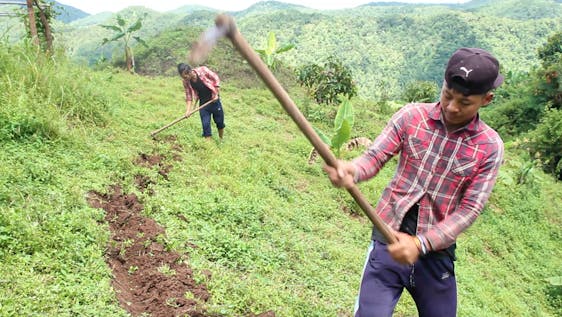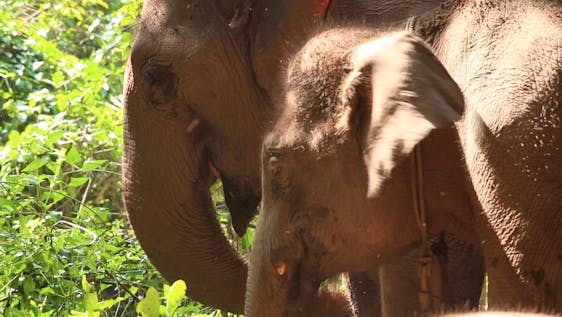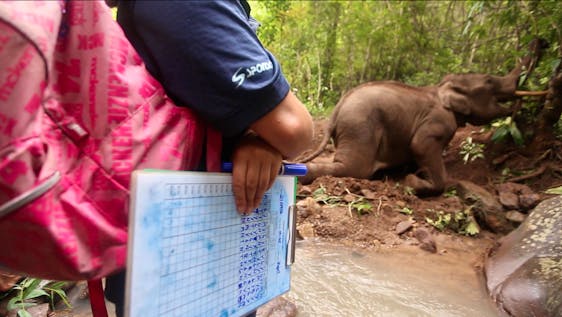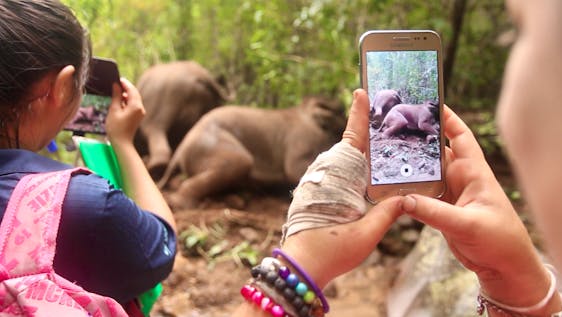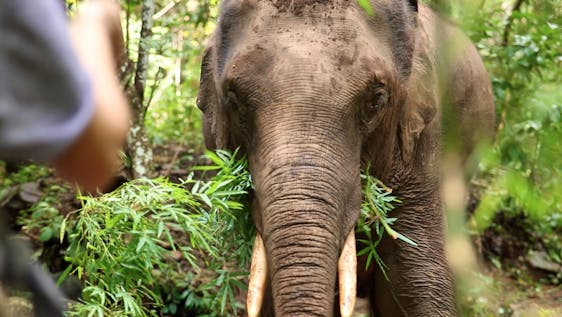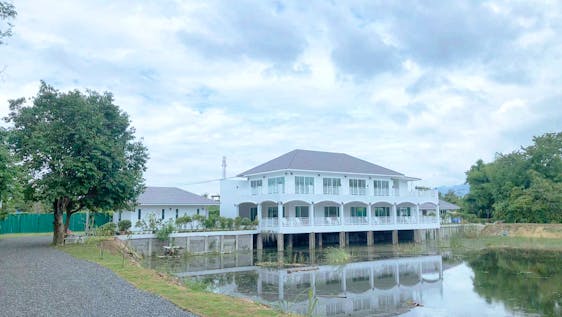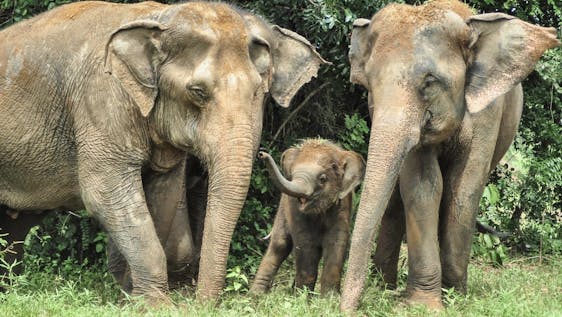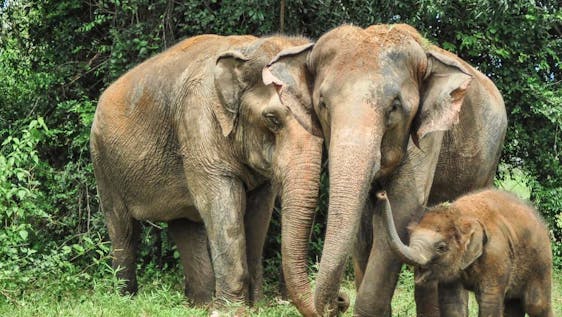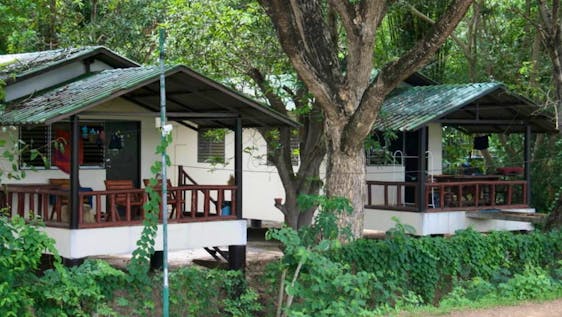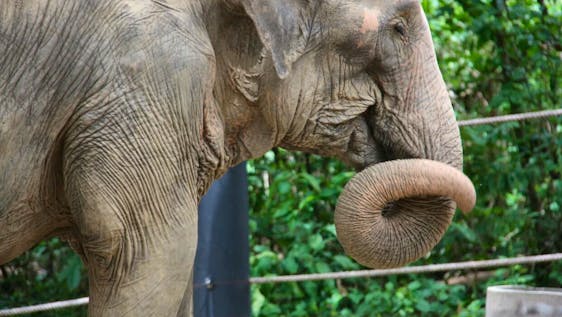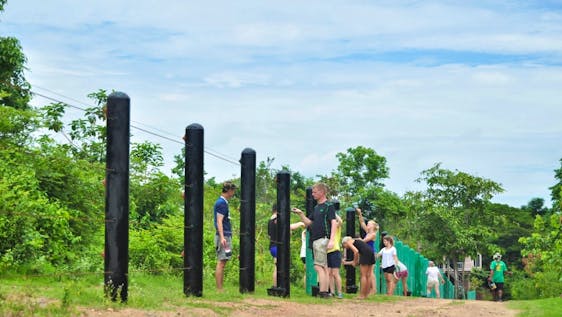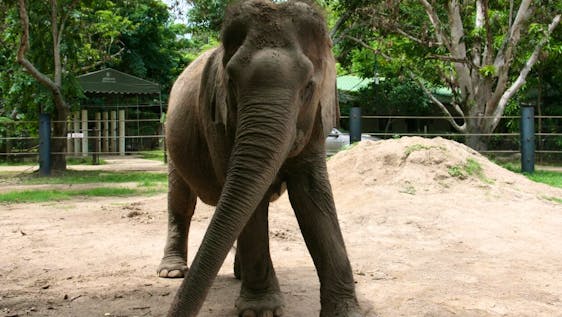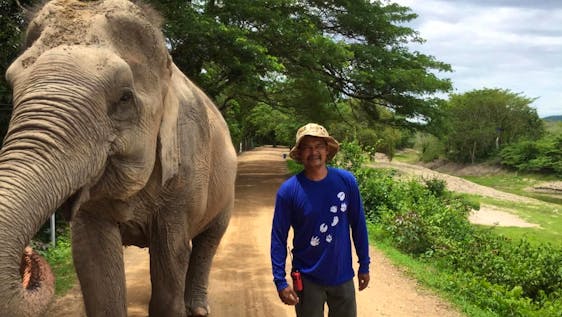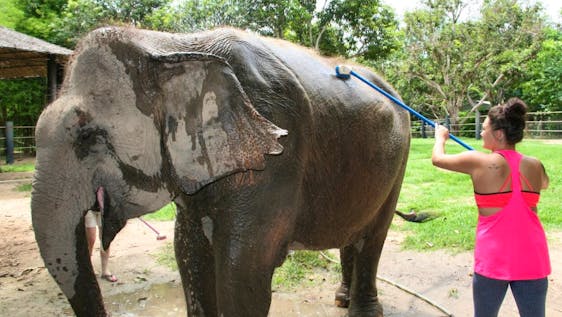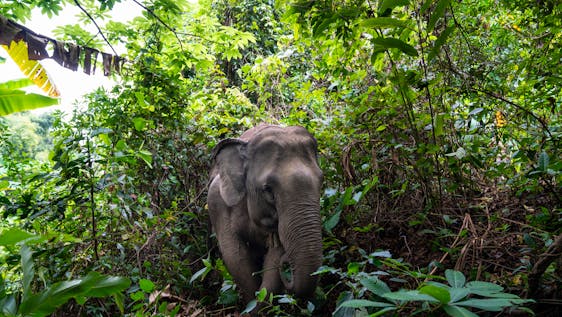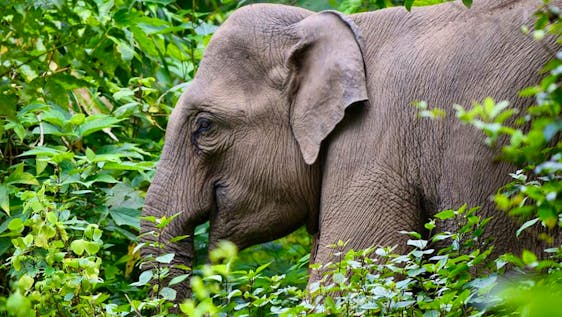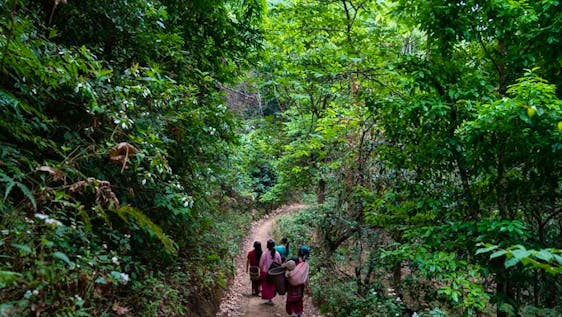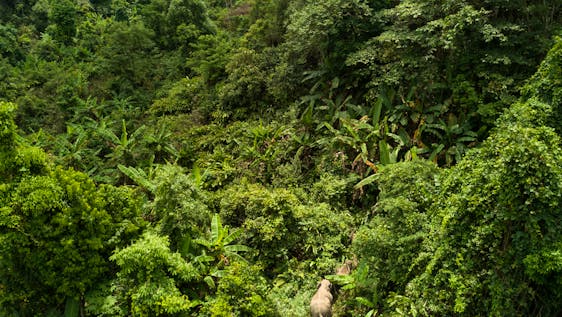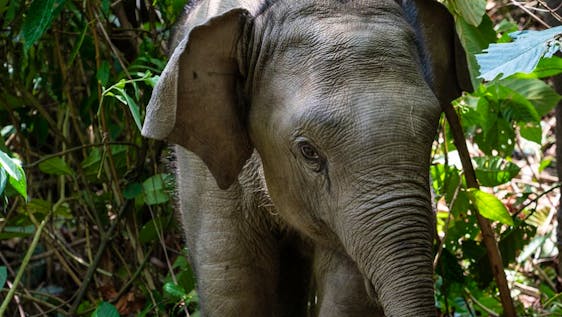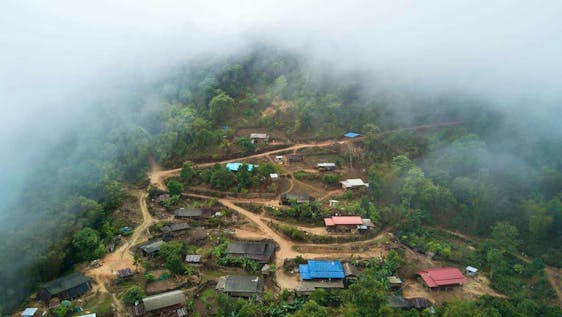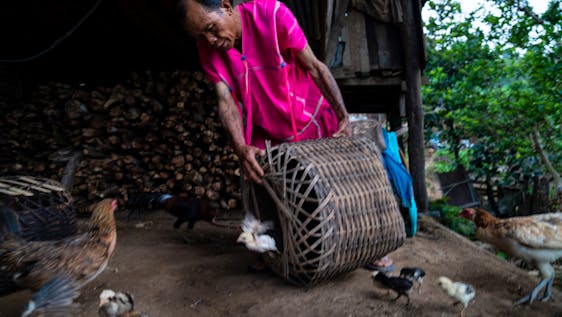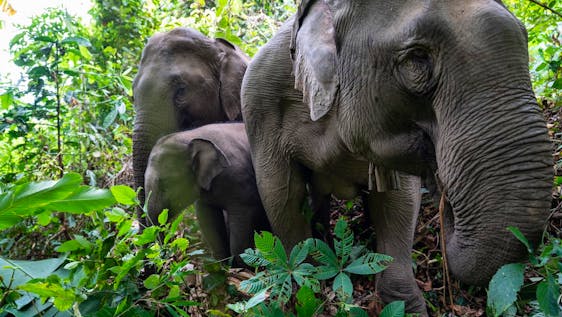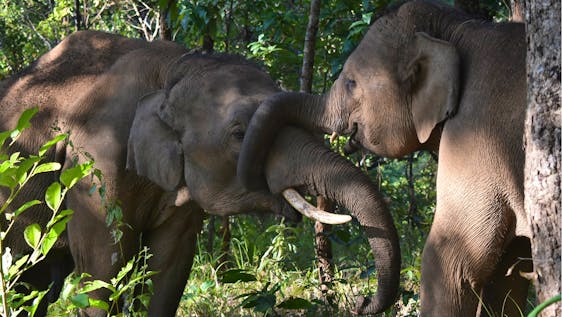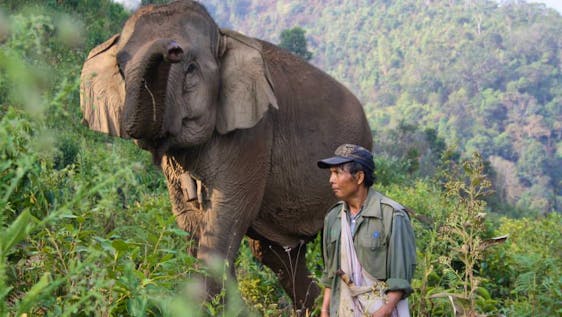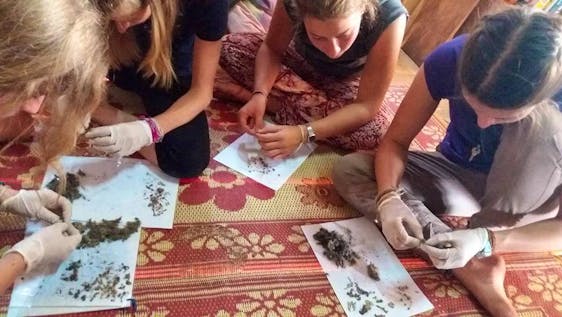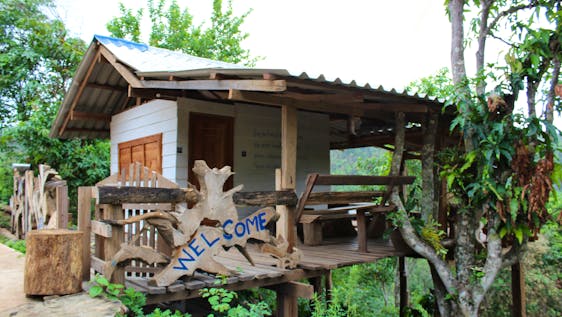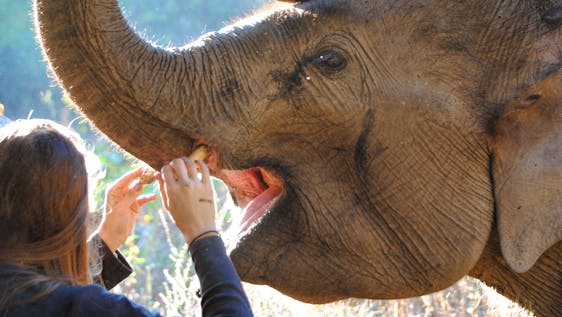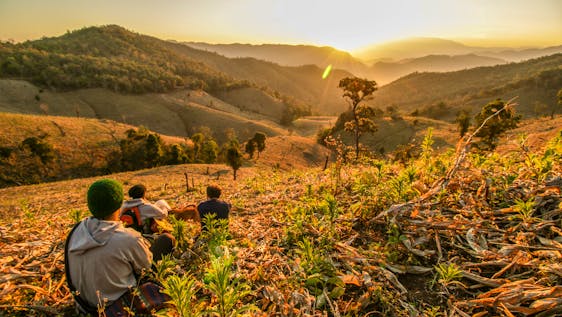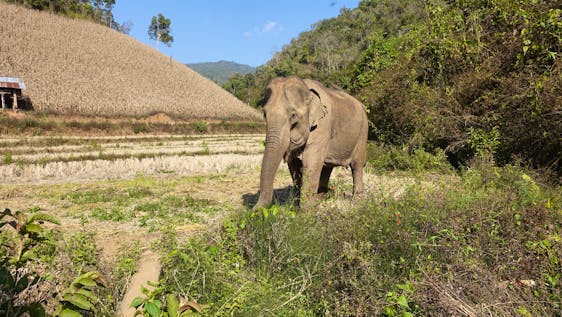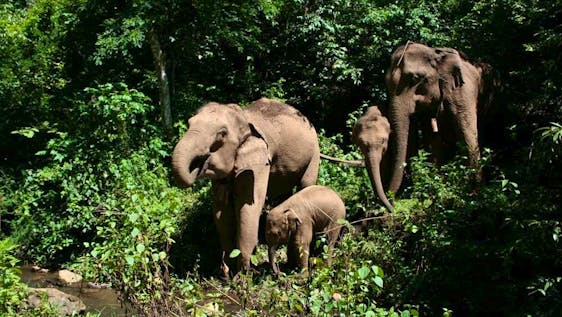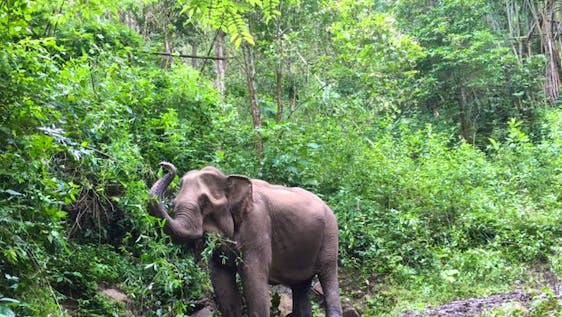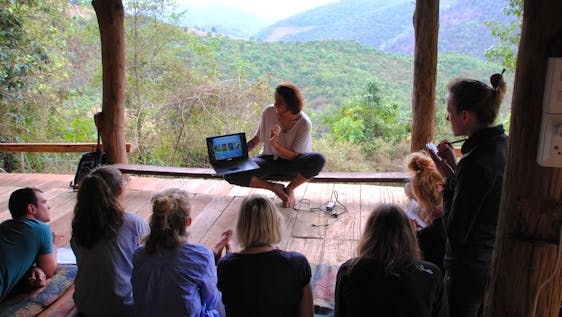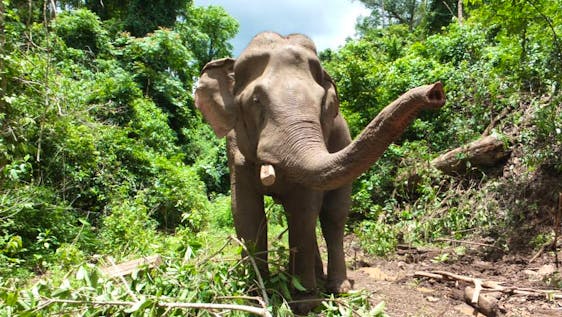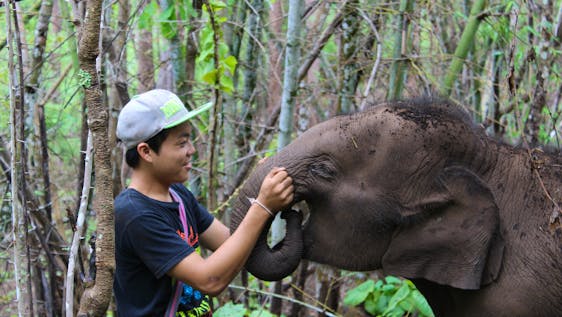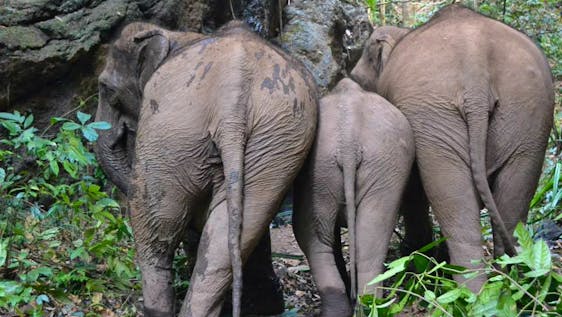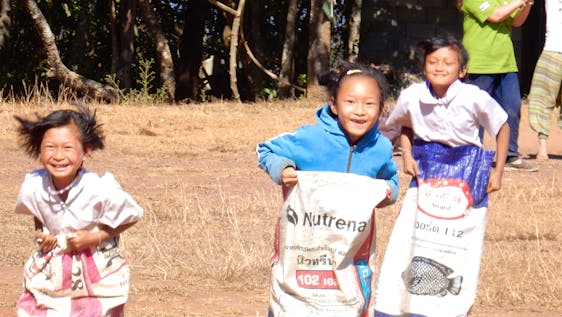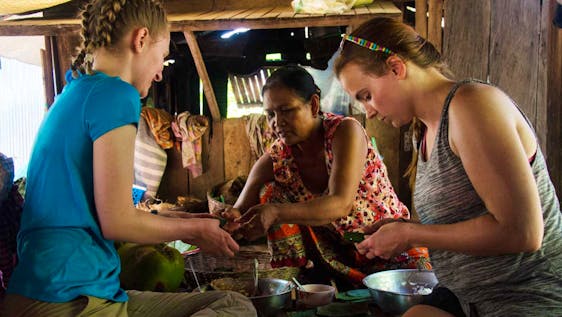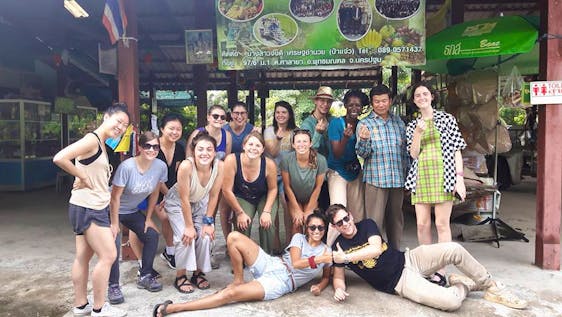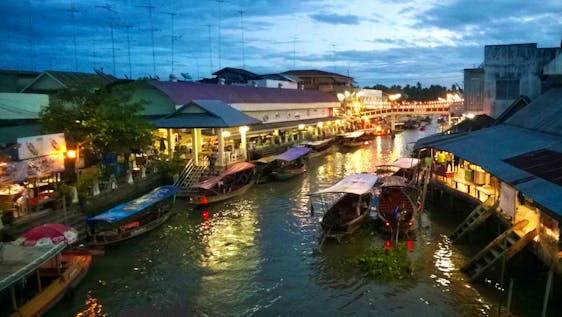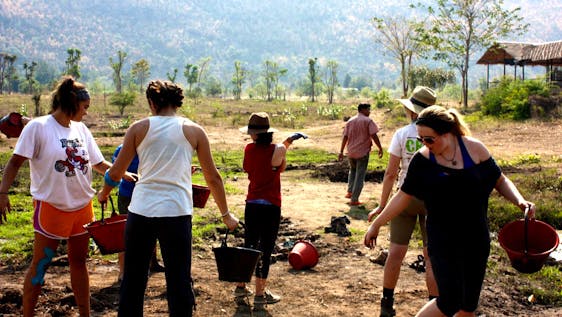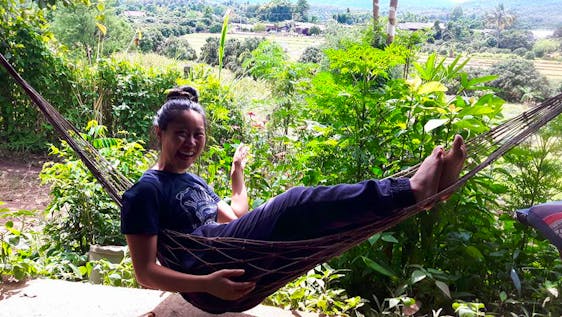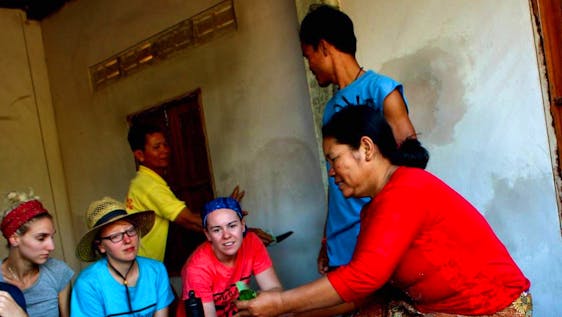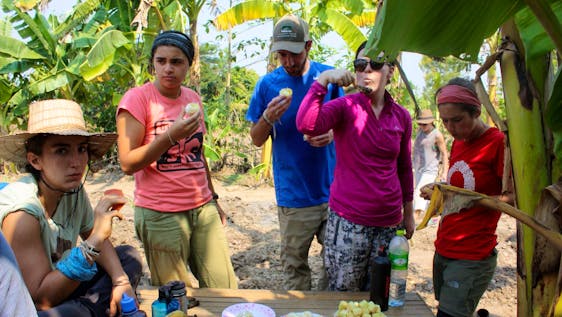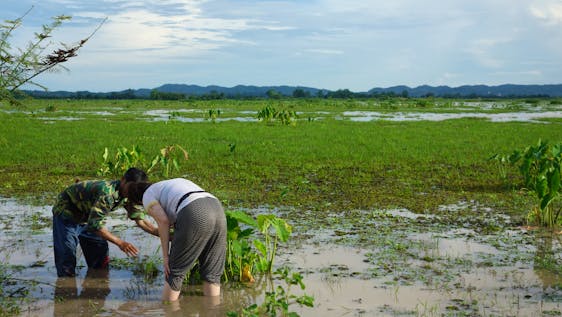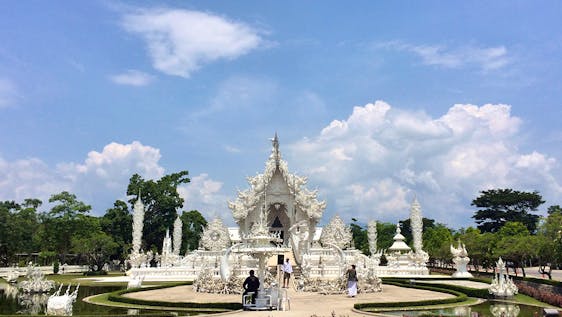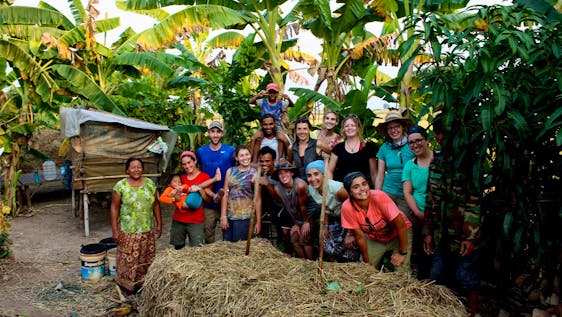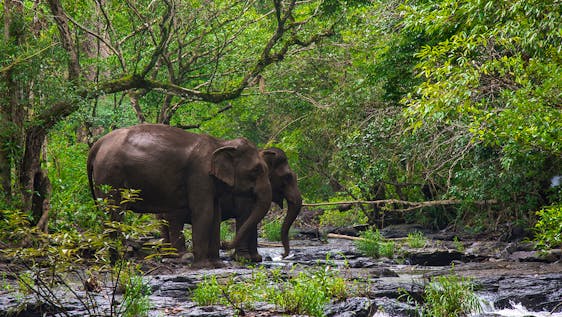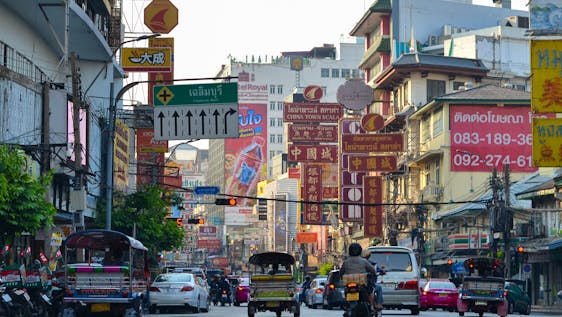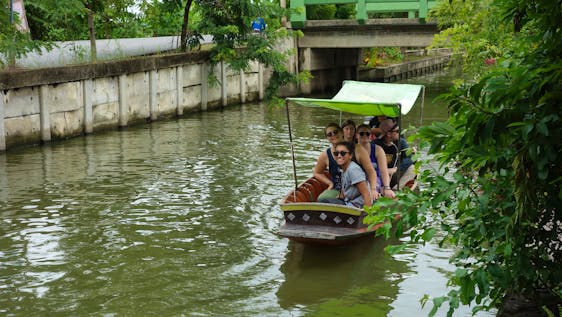Elephant Sanctuary in Thailand
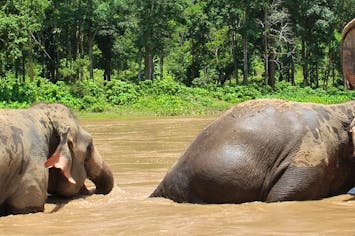

Volunteer at an Elephant Sanctuary in Thailand
One of the countries that comes to mind first when talking about elephants is Thailand. Located in South-East Asia, Thailand is also known for its tropical beaches, opulent palaces, ancient temples, and booming travel hot spots like Chiang Mai and Phuket. The grey giants, however, belong to Thailand and are part of the country’s culture and traditions. You will find traditional elephant sculptures on almost every corner. There is even a letter in the Thai alphabet referring to ‘elephant’, called ‘Chor Chang’. With this in mind, it is even worse than elephants are still being exploited as an economic tool. They are either used as a tourist attraction, e.g. for a jungle tour, or for illegal logging.
🐘 General Facts about Elephant Camps in Thailand
Elephant camps are generally located in tourist hot spots like Chiang Mai and Phuket. During these tours, tourists can visit and spend time with elephants in various ways. For many international visitors, riding on the back of an elephant is the ultimate travel experience. Most of these tourists, however, are not aware of the fact that elephants aren’t made for entertainment. To attract foreign tourists, the elephants are trained to carry people on their backs for jungle tours or to paint ‘funny’ pictures with their trunks.
These tasks are extremely unnatural for elephants. Furthermore, the training methods, especially for riding an elephant, are absolutely cruel and it is often visible as the elephants have noticeable scars and wounds on their thick grey skin.
🐘 What is the Elephant Conservation Status in 2025?
The number of elephants in Thailand has decreased enormously due to the clearing of woodland and nature. As a consequence of deforestation, the Asian elephant has lost most of its natural habitat. Overall, it is assumed that there are between 2.500 and 3.000 wild elephants left in Asia. In comparison, in 1950, the elephant population was as high as 50.000! These numbers show that the Asian elephant is endangered. This is why elephants rely on the human help and protection which they receive in national parks, an elephant sanctuary or a Thai elephant conservation project.
Animal rights activists have been fighting for years to end the abuse of elephants. Elephant conservation volunteer work is always in demand to help protect these helpless creatures. For inexplicable reasons, Thailand still has no laws that prevent the mistreatment and abuse of elephants. Therefore, elephant volunteer programs and ethical nature parks in Thailand are of great importance to guarantee their protection. But what is special about these institutions and where are they in Thailand?
The elephants used in the tourism industry are poached from their natural habitat, e.g the jungle, and sold illegally to different entertainment institutions in travel hot spots like Chiang Mai or Phuket. To have them behave as well as possible, the schooling of the animals starts at a very young age. The training for female elephants starts when they reach the age of four. The education of the male calves starts even earlier. When they are only two years old.
🔔 What are the Biggest Threats to Elephants in Thailand?
The biggest threat to elephants besides the tourism industry is the controversial method used to train the elephants. The method is called ‘Phajaan’ and also known as ‘the crush’ of elephants. This traditional method has been practiced in Thailand for hundreds of years. The training is said to be torture for the animals. Not enough food and water, a lack of sleep and confinement to small narrow cages are used to break the young elephants’ spirit.
The animals are physically harmed by constant strokes or stabbing with the so-called ‘ankus’ - the bullhook. This training method is so cruel that half of the calves going through the process do not survive it.
As part of Thailand’s tradition, the Mahouts (elephant trainer) start their profession at a very young age and are bound to their elephants for life. Over the past decades, being a Mahout has lost its respect and traditional meaning. To survive, many Mahouts use their elephants as a tourist attraction.
🐘 How Can I Help Elephants in Thailand?
A great way to support elephants in Thailand is to volunteer at an elephant sanctuary. In general, animal sanctuaries are special facilities where endangered and rescued animals find protection. In comparison to other institutions such as animal shelters, a sanctuary pursues a specific, ethical philosophy. This fundamental philosophy is based on the idea that the well-being of resident animals comes first and that every animal is equally important. The sanctuary will either be the final home for the animals or make sure that the animals can be released back into the wild.
🆘 What Does an Elephant Sanctuary in Thailand Do?
The mission of each elephant sanctuary in Thailand is to offer a great environment and the best care that can be provided to the animals. The elephants that find a second home in a sanctuary, have often been treated horribly for most of their lifetime. As a tourist attraction or for other economic purposes, the elephants have been through years of tourist trekking or illegal logging. Besides physical wounds, the elephants often have behavioral issues.
If you volunteer at an elephant sanctuary in Thailand, you’ll see that, the elephants are treated with great respect and are allowed to behave as naturally as possible in a protected environment. In comparison to their previous treatment, these safe havens provide individual care for each animal. Furthermore, the elephants get the opportunity to experience herd life. Unlike other institutions, the resident elephants are not bought, sold, or traded in any way. Elephant sanctuaries are also important for elephant conservation efforts. Especially because they are facing extinction in the wild.
Thailand is known for its elephant rescue volunteer work and has a number of elephant sanctuaries. Located around the city of Chiang Mai or Phuket, for example, different projects have been established over many years to provide a safe environment for the gentle giants. In a natural environment such as the jungle, the rescued elephants get the care that they deserve without being harmed by humans. You will find the sanctuaries on large land districts in the forests and hills and they are funded by volunteers, eco-tourism, and donations.
Instead of riding on the elephants’ backs, tourists can visit an elephant sanctuary in Thailand and interact with the animals in a responsible and ethical way. Tourists will also gain knowledge about the importance of elephant conservation volunteer work.
🐘 What Will I Do as a Volunteer at an Elephant Sanctuary in Thailand?
Elephant sanctuaries require a lot of work and depend on the help of international volunteers. Volunteers at an elephant sanctuary will have a variety of tasks. These tasks can include the direct contact with the elephants, such as feeding, bathing and overall care of the elephants. This also includes important work in the field of research and education. Research is of great importance to ensure the future existence of the elephants.
Creating Awareness on Elephant Conservation
The education of both, the locals and tourists, is necessary for the elephant protection and conservation. There’s a lot to do and helping hands and elephant sanctuaries and rescue centers are always looking for elephant volunteers in Thailand. Institutions like this rely on the help and great work of international volunteers as the elephants need to be taken care of on a daily basis.
Other Tasks While Volunteering at an Elephant Sanctuary
If you are thinking about volunteering with elephants in Thailand, keep in mind that you will have many different tasks. Elephant health is of great importance, so elephant volunteer work might include health checks on the animals. Volunteer work with elephants in Thailand can include hard physical work such as cutting grass during the dry seasons or helping in the fields with planting and harvesting crops. There is also research that needs to be done which includes, for example, the collection of certain data about the behavior of the animals.
But there is also work that does not include the direct care of the elephants. In order to raise awareness about the ill-treatment of elephants in Thailand, both locals and tourists need to be informed and educated. Another important task is office work. This work requires, for example, the organization of events for donors, as their donations are of great importance for the sanctuary’s work.
🤑 Can I Volunteer With Elephants in Thailand for Free?
Most volunteer programs require a fee to be paid by the volunteer. This covers accommodation and in some cases also supports organization's activities. You can use the filter option on our platform to search for volunteer programs that fit your budget. Our live chat team is happy to assist you with this.
🎁 5 Benefits of Elephant Conservation Volunteer Work
A Unique Experience
Elephant volunteering in Thailand at an elephant sanctuary or rescue center is a wonderful experience. On the one hand, you will experience something new and adventurous while you work on protecting these amazing animals.
Broaden Your Horizons
Furthermore, you will learn about the Asian Elephant and the ethical project focus of an elephant sanctuary in Thailand. Become an elephant volunteer in Thailand and you will grow as a person as you’re confronted with new situations on a daily basis.
Connect With Other People
Together with Thai locals and other volunteers from all over the world, you will play an active part in improving elephant lives.
It's Healthy!
Volunteering gives people a sense of purpose and allows you to help. This has proven to have a very positive impact on all those who contribute to a cause or volunteer. Traveling is also very beneficial because it requires you to use different parts of your brain You'll only gain from volunteering abroad!
Great on Your Resume
Future employers love that you have some work experience and that you are committed to something greater. This is a great addition to your resume especially when you're starting out on the job market!
EVALUATED NE
DEFICIENT DD
CONCERN LC
THREATENED NT
ENDANGERED CR
IN THE WILD EW
 Elephant Conservation
Elephant Conservation
 Asian Elephant
Asian Elephant
 Asia
Asia
 South East Asia
South East Asia
 Thailand
Thailand
 Wildlife Conservation
Wildlife Conservation
 Animal
Animal
 Hotspots
Hotspots
 Activities
Activities
 Bangkok
Bangkok
 Planting Trees
Planting Trees
 Chiang Mai
Chiang Mai
 Vegan
Vegan
 Animal Sanctuary
Animal Sanctuary
 Monkey Conservation
Monkey Conservation
 Indian Elephant
Indian Elephant
 Yoga
Yoga
 Indigenous cultures
Indigenous cultures
 Bear Conservation
Bear Conservation
 Elephant Research
Elephant Research
 Gibbon
Gibbon
 Macaque
Macaque
 Otter Conservation
Otter Conservation
 Wildcat Conservation
Wildcat Conservation
 Giant Otter
Giant Otter
 Civet
Civet
 Photography Internship
Photography Internship
 Intern Abroad
Intern Abroad
 NGO Support
NGO Support
 Marketing and IT
Marketing and IT
 Ecological Farming
Ecological Farming
 Reforestation
Reforestation
 Conservation Work
Conservation Work
 Mangrove
Mangrove
 Environment
Environment
 Hiking
Hiking
 Voluntourism
Voluntourism
 Volunteer and Travel
Volunteer and Travel
